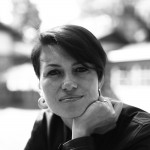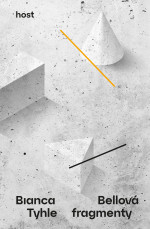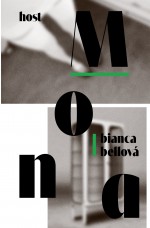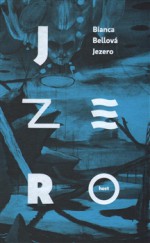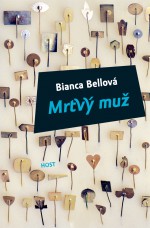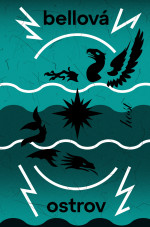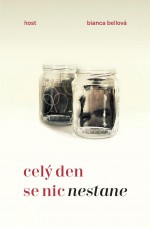Bianca Bellová (1970) was born in Prague, where she lives halfway between the Balkan and British parts of her family. She is a writer, translator and interpreter. She has published several books of fiction, most notably the novel Jezero (The Lake, 2016) which has won a number of literary awards, including the 2017 EU Prize for Literature and the 2023 EBRD Literature Prize, and its publication rights have been sold to twenty-five countries. Her latest books are Ostrov (The Island, 2022) and Transfer (2023).
Bianca Bellová
| Title | Publisher | Year | Selected published translations | Awards |
|---|---|---|---|---|
| The Island (Ostrov ) | Host | 2022 | ||
| These Fragments (Tyhle fragmenty) | Host | 2021 | ||
| Mona (Mona) | Host | 2019 | PL | IT | |
| The Lake (Jezero) | Host | 2016 | EN | | LT | | ES | HU | PL | FR | IT | NL | DE |
2017 European Union Prize for Literature 2017 Magnesia Litera – Book of the Year |
| Nothing Happens All Day (Celý den se nic nestane) | Host | 2013 | ||
| Dead Man (Mrtvý muž) | Host | 2011 | DE | |
| A Sentimental Novel (Sentimentální román) | IFP Publishing | 2007 | IT |
| Award | Year | Country |
|---|---|---|
| Magnesia Litera – Book of the Year | 2017 | Česká republika |
| European Union Prize for Literature | 2017 | EU |
Praise
The imagery of Bianca Bellová’s ‘Dead Man’ is fascinating, it pulses with its own language. Despite its fierceness, the text is organised and under control. From the first sentence the reader is hooked.
—Jáchym Topol
Lidové noviny
Her first book, Sentimentální román (Sentimental Novel), came out in 2009 and describes the trials of growing up near the end of the communist totalitarian regime. Before then she had written a novel, Green Curry, based on memories of her grandmother who won a beauty contest in Bulgaria when she was fourteen, and received her crown from the Bulgarian tsar himself. However, the book was never published. Sentimental Novel was at first rejected by several publishers until finally IFP Publishing brought out the author’s book. It is based on the meeting of a man and woman, which sets off a flow of memories. However, the author managed to rein in the sentimentality and the novella moved towards a tragic presentiment of approaching death.
Two years later the publishers Host brought out the novella Mrtvý muž (Dead Man), which impressed critics. With a cynical tone it charts the story of a traumatized family during the bitter decades of the 1970s and ’80s – the grandfather had fallen victim to the regime (the author opens the book with the sentence “They hanged Grandad in September 1950”), the grandmother spitefully fights against them, the mother is on the verge of a complete breakdown while the father experiences his own ‘coming out’ during the Velvet Revolution. The children – the main character Hana and her twin David – play at being the Mašín brothers (who fought the Communists in the 1950s) and the “communist bastards”. Bellová blends humour and cynicism in the description of the main character’s love interest – an ordinary relationship – thousands of which start and finish every day, though even here final revenge has its place.
In 2013 Host brought out Bellová’s novella Celý den se nic nestane (Nothing Happens All Day), set in a hotel which is preparing for a wake. One employee, Marta, is trying to find a way to communicate with her 16-year-old daughter Lola, while both of them miss Esterházy, a man who has abandoned them both. The title both reflects and does not reflect reality: until the evening nothing much happens, but the reader is able to reconstruct the stories behind the lives of both the women as well as Esterházy. “Esterházy as the half-brother of Beckett’s Godot, as a symbol of waiting, anticipation, the one behind everything, the alpha and omega, as a sweetheart, as…if life was not possible without Esterházy,” wrote Jakub Šofar in the newspaper Právo. Once again, at first glance it is a banal story about interpersonal relationships and unfaithfulness, again told with cynical exaggeration in a cascade of spontaneous words and dialogues, as well as frequent inner monologues. And again, death is present alongside tragic love.
Her latest novel, Jezero (The Lake), won the EU Prize for Literature and the Magnesia Litera Book of the Year award. Set near a lake that is drying up and ominously pushing out its banks, The Lake is an archetypal story of the coming of age of a young hero who fights his way out of a tough environment as he searches for his roots in the contaminated soil of his devastated lakeland home. Critic Alena Slezáková praised the book as “one of the most remarkable books of recent years”.
